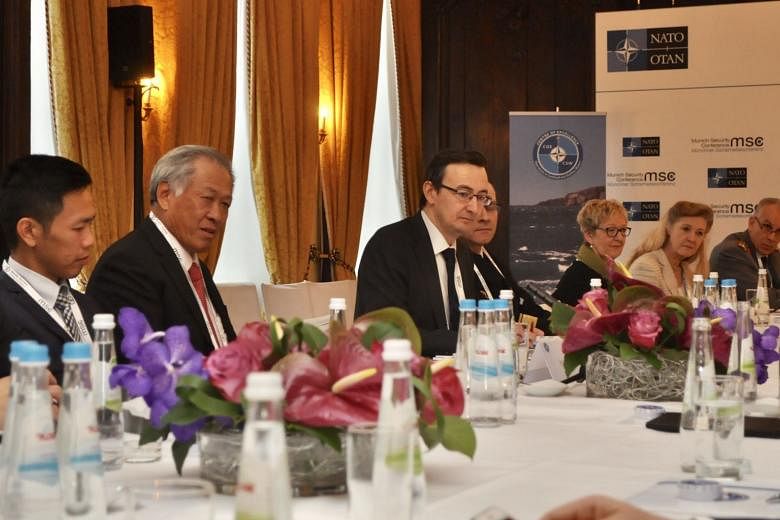SINGAPORE - China and Asean are committed to completing code of conduct guidelines to handle disputes in the South China Sea, said Defence Minister Ng Eng Hen on Saturday (Feb 17).
Dr Ng told a maritime security roundtable at the Munich Security Conference in Germany that one aspect of China's interest in the island chains in the South China Sea is they present potential encirclement against it.
The approach of Asean member states to these issues has been a "pragmatic one", said Dr Ng, noting that the Declaration on the Conduct of Parties in the South China Sea, which Asean and China signed in 2002, took more than five years.
"This frames our expectations for the (code of conduct)," he said.
"In the meantime, the Asean Defence Ministers Meeting has worked hard to produce consensus on practical measures that prevent mishaps and miscalculations, or if there are,to de-escalate issues."
He noted that there have been at least 38 reported small-scale incidents between claimant states' ship since 2013, many of which involved fishing vessels that were eventually resolved peacefully.
Dr Ng said the Republic was glad to see that foreign affairs agencies had operationalised their hotline to respond to maritime emergencies, and that defence agencies in the region had also launched a similar direct communications infrastructure.
Dr Ng said Singapore is also pleased that the Code for Unplanned Encounters at Sea (CUES) had been expanded to all ADMM-Plus countries in November last year (2017).
ADMM-Plus includes the 10 Asean states as well as eight other countries - Australia, China, India, Japan, New Zealand, South Korea, Russia and the United States.
Singapore, the Asean Chair this year (2018), hopes to develop guidelines for encounters between regional military aircraft, he said, adding that multilateral undertakings, such as the Asean-China Maritime Exercise 2018, can "enhance practical cooperation and build confidence".
Noting that an estimated one-third of all global shipping passes through the South China Sea, Dr Ng said: "All countries have recognised the critical need for peace and stability in these waters."


